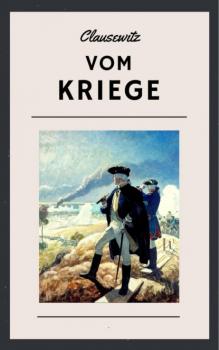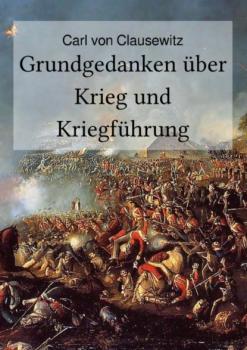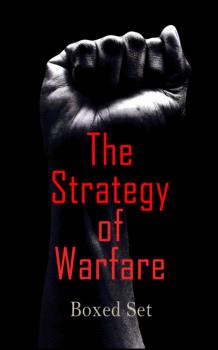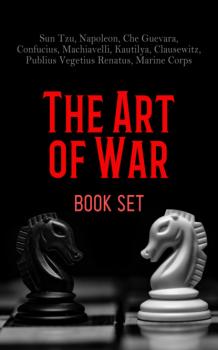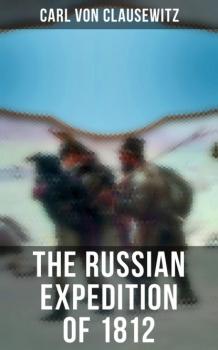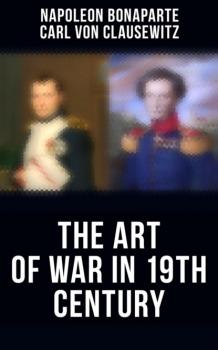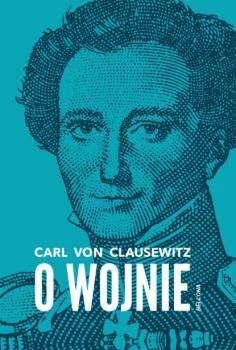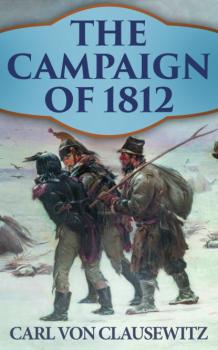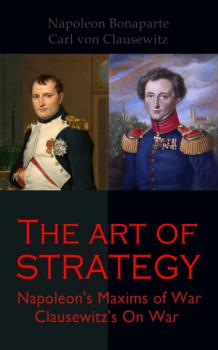Carl von Clausewitz
Список книг автора Carl von ClausewitzClausewitz - Vom Kriege
"Vom Kriege" ist ein zeitloses Standardwerk der Strategielehre. Carl von Clausewitz hat das militärstrategische Wissen seiner Zeit übersichtlich zusammengefasst, um es lehr- und lernbar zu machen. Seine Handlungsanleitungen für die Aufklärung der Stärke des Gegners, den Umgang mit überraschenden Ereignissen und dem Treffen schneller Entscheidungen bei dürftiger Informationslage haben es in zahlreiche Strategiebücher jüngeren Datums geschafft. Besonders in der Marketingstrategie erfreut sich Clausewitz großer Beliebtheit. «Vom Kriege» aber ist das historische einflussreiche Original. Dieses E-Book enthält eine vollständige Ausgabe des Werkes «Vom Kriege» von Carl von Clausewitz.
Grundgedanken über Krieg und Kriegführung
Das Werk von Carl von Clausewitz gilt als eines der Standardwerke über das Thema der Kriegsführung. Geprägt durch die Napoleonischen Kriegen und der vernichtenden Niederlage der Franzosen im Krieg gegen Russland, zeigt der Autor auf, welche Faktoren erfolgreiche Feldherren ausmachen und welche zum Scheitern im Krieg führen. Von Clausewitz greift bei seinen Gedanken auf einen breiten Fundus an praktischer Kriegserfahrungen zurück, bezieht sich aber auch auf historische Persönlichkeiten. Die Ausgabe wurde mit einigen erklärenden Fußnoten ergänzt, ebenso wurde die Rechtschreibung an aktuelle Regeln angepasst.
The Strategy of Warfare – Boxed Set
E-artnow presents to you this meticulously edited collection of the greatest military strategy books in history: On War (Carl von Clausewitz) Maxims of War (Napoleon Bonaparte) Battle Studies (Ardant du Picq) Guerrilla Warfare (Ernesto Che Guevara) The Book of War (Wu Qi) The Art of War (Sun Tzu) The Analects: The Book of Leadership (Confucius) Arthashastra: The Ancient Indian Book on Wisdom and Strategy (Kautilya) Strategemata: The Manual of Military Tactics (Sextus Julius Frontinus) De re military: Organization of the Roman Army and Battle Tactics (Publius Vegetius Renatus) The Art of War (Niccolò Machiavelli) Small Wars Manual: The Strategy of Military Operations (US Marine Corps)
The Art of War - Book Set
E-artnow presents to you the most important books on military organization, the art of war, movements of armies, decision-making, leadership and most important of all – the strategy: The Book of War (Wu Qi) The Art of War (Sun Tzu) The Analects: The Book of Leadership (Confucius) Arthashastra: The Ancient Indian Book on Wisdom and Strategy (Kautilya) Strategemata: The Manual of Military Tactics (Sextus Julius Frontinus) De re military: Organization of the Roman Army and Battle Tactics (Publius Vegetius Renatus) The Art of War (Niccolò Machiavelli) On War (Carl von Clausewitz) Maxims of War (Napoleon Bonaparte) Battle Studies (Ardant du Picq) Guerrilla Warfare (Ernesto Che Guevara) Small Wars Manual: The Strategy of Military Operations (US Marine Corps)
The Russian Expedition of 1812
This is a rare objective example of the war record created by the eye-witness. The value of this work is enormous, as the author, General von Clausewitz, was neither French nor Russian himself, therefore as free from national sentiments. The book gives an accurate and scientific record of all events from the arrival to Wilna campaign start to the Battle of Borodino and further retreat. You will also read about the most prominent personalities of the time, like Napoleon Buonaparte, Kutuzov, Ouspensky, Czar Alexander, and others. An author gives a deep strategic-level historical, political, and social analysis of events of the French campaign. For example, he touches upon the burning of Moscow, whether it was necessary, and what would be the consequences if the city had been preserved. Clausewitz tries to analyze other scenarios for Napoleon's retreat. Was it possible for him to save his army, and what factors did a great leader miss? Generally, «The Campaign of 1812» is a valuable source of rare information and analysis on one of the most crucial war campaigns in the history of humanity.
The Art of War in 19th Century
The Military Maxims of Napoleon will provide the reader with the very essence of the Napoleonic art of war. This book is a collection of maxims which directed the military operations of the greatest captain of modern times, Napoleon Bonaparte. This extraordinary collection shades light to the period of French domination over Europe, which was build on Napoleon's great military and political skills. On War is one of the most important treatises on political-military analysis and strategy ever written, and remains both controversial and influential on strategic thinking. It was written by Prussian general Carl von Clausewitz, after the Napoleonic wars, between 1816 and 1830. Clausewitz had set about revising his accumulated manuscripts, but did not live to finish the task. On War represents his theoretical explorations. Clausewitz analyzed the conflicts of his time along the line of the categories Purpose, Goal and Means. He reasoned that the Purpose of war is one's will to be enforced, which is determined by politics. The Goal of the conflict is therefore to defeat the opponent in order to exact the Purpose. The Goal is pursued with the help of a strategy that might be brought about by various Means such as by the defeat or the elimination of opposing armed forces or by non-military Means (such as propaganda, economic sanctions and political isolation). Thus, any resource of the human body and mind and all the moral and physical powers of a state might serve as Means to achieve the set goal.
The Campaign of 1812
This is a rare objective example of the war record created by the eye-witness. The value of this work is enormous, as the author, General von Clausewitz, was neither French nor Russian himself, therefore as free from national sentiments. The book gives an accurate and scientific record of all events from the arrival to Wilna campaign start to the Battle of Borodino and further retreat. You will also read about the most prominent personalities of the time, like Napoleon Buonaparte, Kutuzov, Ouspensky, Czar Alexander, and others. An author gives a deep strategic-level historical, political, and social analysis of events of the French campaign. For example, he touches upon the burning of Moscow, whether it was necessary, and what would be the consequences if the city had been preserved. Clausewitz tries to analyze other scenarios for Napoleon's retreat. Was it possible for him to save his army, and what factors did a great leader miss? Generally, «The Campaign of 1812» is a valuable source of rare information and analysis on one of the most crucial war campaigns in the history of humanity.
The Art of Strategy: Napoleon's Maxims of War + Clausewitz's On War
The Military Maxims of Napoleon will provide the reader with the very essence of the Napoleonic art of war. This book is a collection of maxims which directed the military operations of the greatest captain of modern times, Napoleon Bonaparte. This extraordinary collection shades light to the period of French domination over Europe, which was build on Napoleon's great military and political skills. On War is one of the most important treatises on political-military analysis and strategy ever written, and remains both controversial and influential on strategic thinking. It was written by Prussian general Carl von Clausewitz, after the Napoleonic wars, between 1816 and 1830. Clausewitz had set about revising his accumulated manuscripts, but did not live to finish the task. On War represents his theoretical explorations. Clausewitz analyzed the conflicts of his time along the line of the categories Purpose, Goal and Means. He reasoned that the Purpose of war is one's will to be enforced, which is determined by politics. The Goal of the conflict is therefore to defeat the opponent in order to exact the Purpose. The Goal is pursued with the help of a strategy that might be brought about by various Means such as by the defeat or the elimination of opposing armed forces or by non-military Means (such as propaganda, economic sanctions and political isolation). Thus, any resource of the human body and mind and all the moral and physical powers of a state might serve as Means to achieve the set goal.

